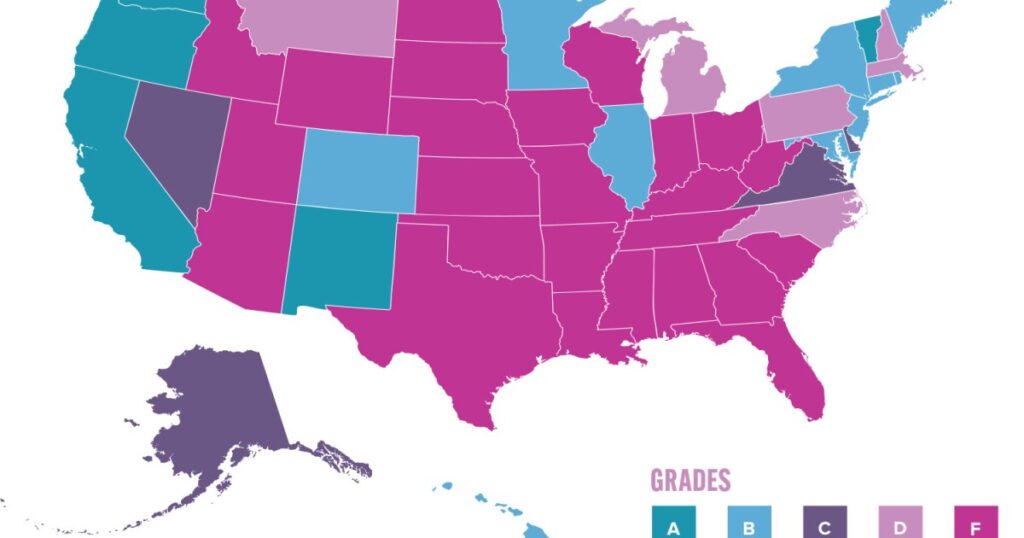As Nevada strives to enhance its reproductive health care landscape, a recent national report card graded the state with a C+, highlighting areas for improvement. Concurrently, Nevada lawmakers are advocating for legislative changes to bolster access to such services.
The rePROs Fight Back 50-State Report Card assesses states on prevention, affordability, and access concerning reproductive health care. While Nevada’s overall score was moderate, thirty-one states fell into the D or F categories.
Jennie Wetter, the report’s director and lead author, attributed Nevada’s lower score to its sex education policies. Although sex education is required in public schools, the curriculum lacks a mandate to cover birth control topics, as noted in the current guidelines.
“But it does make sure that it’s medically accurate, which is really important,” Wetter said.
Highlighting the interconnectedness of education and health care, Wetter emphasized, “If you don’t get good sex ed, you will have a hard time making healthy decisions later in your life. You can’t access services if you can’t afford them, or you don’t know they exist. And you can’t access services if the state is putting barriers in your way. Your ability to exercise your sexual and reproductive health and rights absolutely depends on where you live.”
A previous attempt to transition sex education from an opt-in to an opt-out format was unsuccessful in the last legislative session. However, Assemblymember Selena Torres-Fossett has introduced a similar bill this session.
Lucia Starbuck
/
KUNR Public Radio
“Ultimately, here in the state of Nevada, this is also a conversation happening at a district level and one that we continue to support,” Torres-Fossett stated.
This week, legislative efforts have intensified, with several bills introduced to expand reproductive health care access and safeguard providers.
On Wednesday, Torres-Fossett presented a bill to prevent government entities from imposing substantial barriers to accessing reproductive health services, focusing on contraception.
Assemblymember Sandra Jauregui put forth legislation to ensure that prescriptions related to pregnancy termination and miscarriage management display the health care practice’s name instead of the practitioner’s. She cited safety concerns, mentioning that providers of reproductive health care are increasingly facing violence.

Lucia Starbuck
/
KUNR Public Radio
“This is about protecting access to care when providers feel unsafe,” Jauregui noted. “When clinics are targeted, and when privacy is compromised, access to care disappears.”
A related proposal seeks to allow reproductive health care providers to conceal their home addresses from public records like those held by county assessors. Critics argue for extending such protections to anti-abortion activists and raise concerns about reduced transparency.
In addition, discussions on Thursday will focus on legislation to enhance protections for patients and providers of assisted reproductive technologies, such as IVF, and make such treatments more affordable through expanded insurance coverage. Democrats are urging Republican counterparts to join them in supporting these initiatives.





